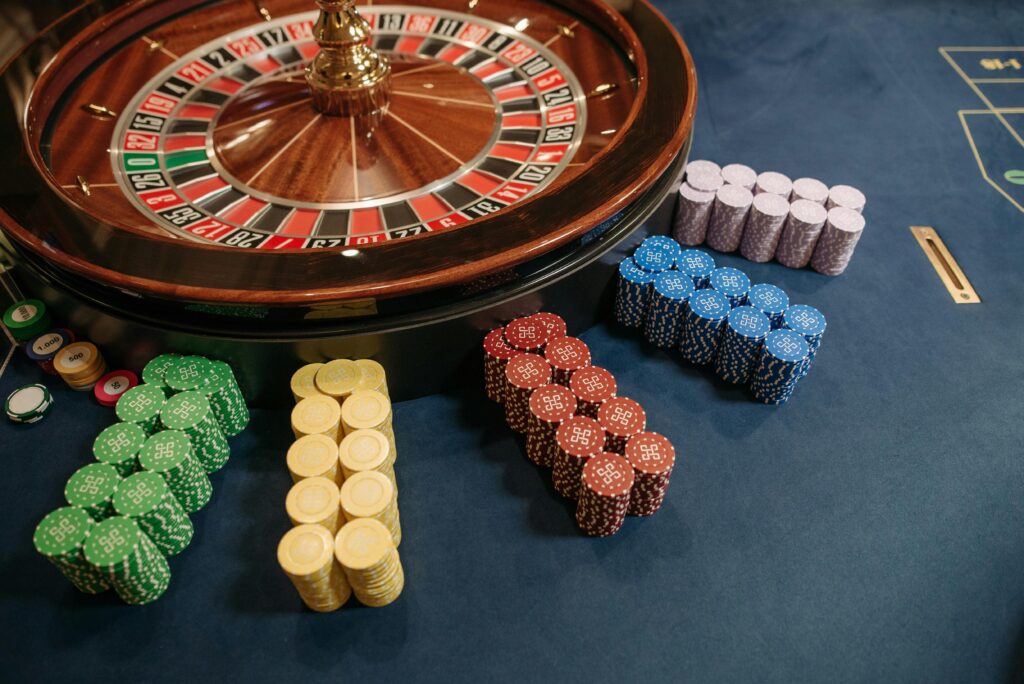Roulette. The spinning wheel, the clicking ball, the quiet anticipation as either red or black wins. This scene has drawn in players for decades, mixing chance and what seems like strategy. However, our brains function in ways that make real strategic victory in roulette impossible. Cognitive biases, those mental shortcuts that can often mislead us, greatly affect our betting choices. Thus, what seems like a simple game of chance actually emerges as a struggle against our own flawed thinking.
A Desire to Doube Down on Losses
The sunk cost fallacy is often the first culprit in terms of flawed thinking. Players often place higher value on things because they have spent resources on them, even if those investments were poor choices. In roulette, this means players might continue to increase their bets after losses. They hope to recover their previous losses. A study in 2017 from “Judgment and Decision Making” showed this effect with slot machines. The study indicated that people who had already lost money tended to keep gambling, despite the odds not getting better. This shows how the emotional impact of sunk costs can blur your decision-making and cause more losses.
Mistaking Randomness for Patterns
According to new data from BonusFinder, several top casinos in the U.S. maintain that roulette continues to be a favorite game. One strong bias is the gambler’s fallacy. This erroneous way of thinking makes one think that random events will balance themselves out. If you see several wins for red, the gambler’s fallacy might make you think black is “due”. In various scientific studies over the years, researchers carried out experiments where people guessed the outcomes of coin flips. Sometimes, when flipping a coin, individuals may make the mistake of thinking that if the coin lands on heads several times, then the next flip will result in tails more frequently. This belief stems from the idea of balance in randomness, but it’s actually incorrect. This line of thinking can lead people, much like roulette players, to chase unlikely outcomes and waste their money, believing that the odds must eventually balance out.
Feeling Like You Can Beat the Odds
Roulette plays into our innate desire for control and predictability. The sight of the wheel spinning and the ball jumping across numbers makes us believe there might be a way to predict the outcomes amid the apparent chaos. This feeling drives us to try and find patterns where there might not be any. Order often creates a false sense of ability, leading players to think they can overcome the game’s built-in randomness. Psychologists have shown that people who believe they have control of a coin toss often think the results will be in their favor, even though the results are random. This illusion of control can make people place riskier bets at roulette and is something to keep in mind.
Strategies for Smarter Roulette Play
Now that you understand the biases silently impacting your thinking, you’re probably wondering how to overcome them. Recognizing your cognitive biases online is the first step to improve roulette strategy. Here are some key tips to make sure you approach the wheel with confidence:
- Create an effective budget and stick to it. Avoid trying to recover previous losses.
- Concentrate on the odds rather than any apparent winning or losing streaks. Remember, past plays do not influence future results.
- Dodge complex betting systems. They might give a false sense of control but do not affect the overall house advantage.
- Take regular breaks to avoid fatigue. Tiredness can impair decision-making abilities and increase susceptibility to biases.
Roulette is a game of chance that always stacks the odds in the casino’s favor. But that shouldn’t discourage you. Understanding how the game works and its quirks can help you play smarter and minimize your losses. Plus, let’s not forget how much fun it is to spin that wheel and see where it lands. Feel free to give it a try – you never know what might happen at the roulette table.





